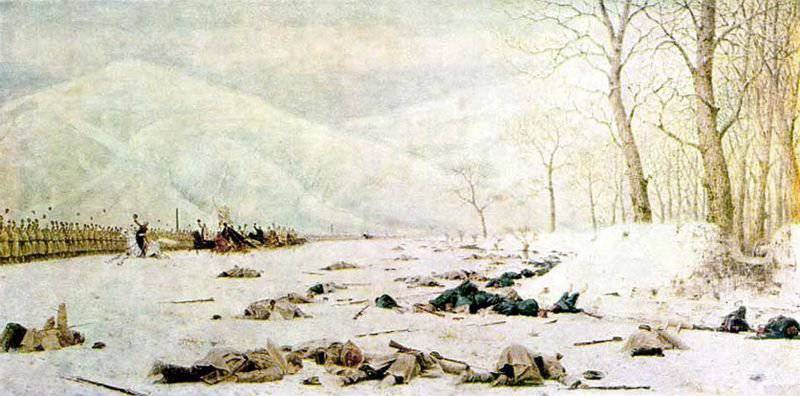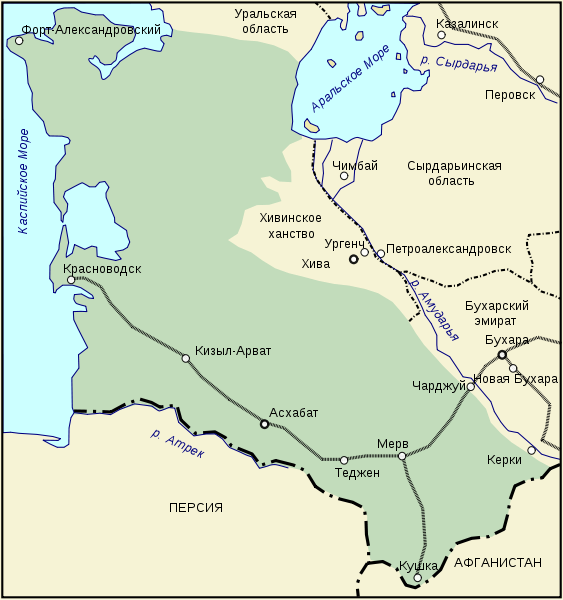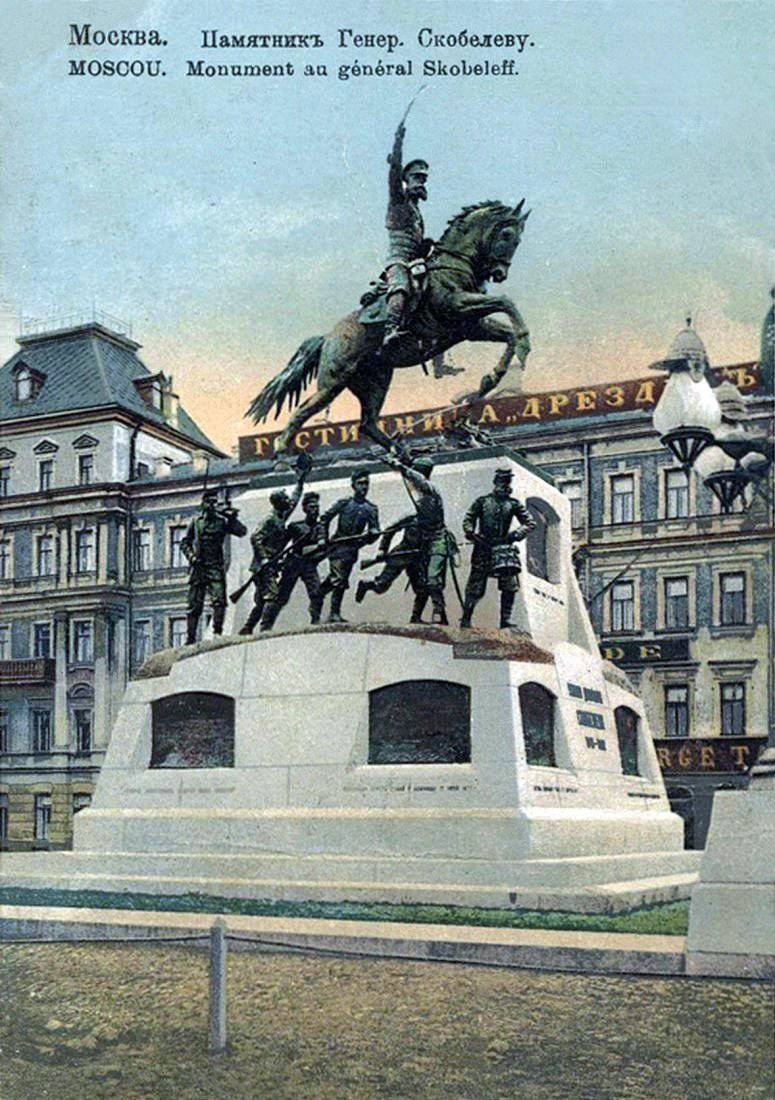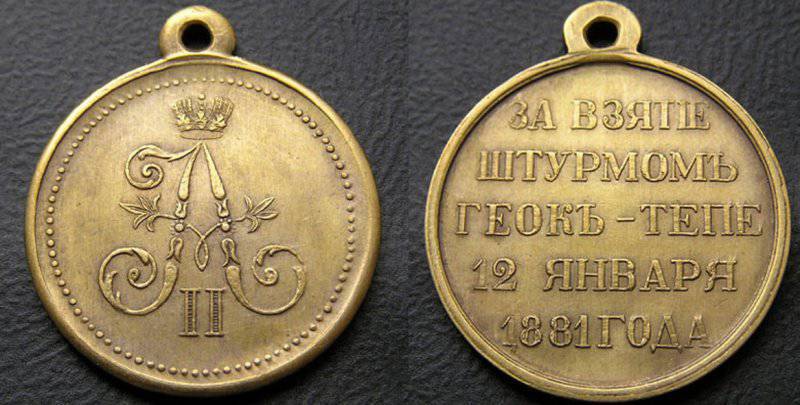"White General". Part of 2
From the order of General Skobelev.
Russian-Turkish war 1877 — 1878
The peak of the career of Mikhail Dmitrievich Skobelev fell on the Russian-Turkish war of 1877-1878, one of the main goals of which was the liberation of the Christian and Slavic peoples of the Balkan Peninsula from the centuries-old yoke of the Ottoman Empire. In the Balkans, a series of uprisings and wars took place: in 1875, Bosnia and Herzegovina rebelled; Bulgaria broke out in the spring of 1876, the Ottomans drowned the Bulgarian uprising in blood; June 1876, Serbia, and Montenegro after it, declared war on the Ottoman Empire, and were defeated. Russia's attempts to solve the problem through diplomacy did not lead to success. 12 (24) April 1877, the Russian Empire declared war on Turkey.
Skobelev decided to certainly participate in this war. For this, some obstacles had to be overcome. In St. Petersburg, an unfriendly opinion was formed against the general: success in cases against the “rogue” was not considered a real victory, besides, he was accused of excessive ambition and “unrestrained” lifestyle. With difficulty Skobelev managed to achieve an appointment for the war, and even then not to the front line, but the chief of staff of the Caucasian Cossack Division, commanded by his father, DI Skobelev.
On the very first day of the war, 12 (24) of April, 1877 of Skobelev, with a flying squad, occupied the Barbos railway bridge across the Seret River and thus ensured the advancement of the army. 14-15 June Skobelev promoted the crossing of the General Dragomir's detachment across the Danube at Zimnitsa. He forced the Turks to retreat and for this case was awarded the Order of St.. Stanislav 1 degree with swords. After the disbanding of the Caucasian Cossack Division, the father and son of the Skobelevs were placed at the disposal of the commander in chief and took part in the battle for Pleven.
Mikhail Dmitrievich did not sit in the headquarters and took part in a variety of battles and skirmishes: June 25 (July 7) - in reconnaissance and capture of the city of Bela; 3 (15) July - in a reflection of the Turkish attack at Selvi; 7 (19) July - in the occupation of Shipka; 16 July - spent reconnaissance at Lovcha and offered to capture it. Skobelev took part in two sorrowful for the Russian army and the bloody storming of Plevna (8 (20) July) and 18 (30) July. The fortress managed to occupy the corps of Osman Pasha, a talented Turkish commander. In this battle, the initial insufficient number of the Russian army affected, we had to wait for the arrival of reinforcements from Russia and the Romanian troops.
During the second assault on Plevna, Skobelev defended the left flank of the Russian troops and with active actions of his small detachment (commanded by the Caucasian Cossack Brigade) he held back superior enemy forces and saved the left wing of the army. The general developed a plan for the capture of Lovcha, where a part of the Turkish army was located. 22 August 1877, Lovchu took. For this success Skobelev was promoted to lieutenant general. During the third assault on Plevna, at the end of August 1877, Mikhail Dmitrievich led the actions of the left-flank squad. Attacks of the right flank and center of the Russian army did not lead to success. The troops under the command of Skobelev broke through to Pleven, capturing three ridges of the Green Mountains and the 2 Redoubt. Their success could be developed by transferring forces from the center and right flank; many units did not take part in the battle at all. However, due to the improper organization of command and control by the high command, they did not render assistance to Skobelev. His squad was supposed to hold back the onslaught of more than Osman Pasha’s 2 / 3 forces. The general fought off 4 enemy attacks, but having lost 6 thousands of fighters, was forced to withdraw troops.
After this assault, Skobelev was appointed head of the 16 Infantry Division. The division lost up to half of the composition, and Mikhail Dmitrievich put it in order. During the siege of Pleven, the lieutenant general led the Pleven-Lovchinsky detachment, which held the fourth section of the siege ring. Skobelev, being a supporter of quick offensive actions, spoke out against this siege, believing that a siege leads to a delay of war and allows the enemy to better prepare for defense. After the fall of Pleven, the 16 Infantry Division of Mikhail Skobelev as part of the Russian troops made a difficult winter crossing over the Balkan Mountains and became part of the group of General Radetsky who stood on the Shipka position against Wessel Pasha. 27 — 28 of December (8 — 9 of January) in the battle of Sheinovo Skobelev commanded the right column and accepted the surrender of Wessel Pasha.

Skobelev under Shipka - Vereshchagin.
At the last stage of the war, while pursuing the fleeing Ottoman forces, Mikhail Dmitrievich headed the Russian avant-garde, secured the capture of Andrianopol, and then took the town of Chorlu, located in 80 km from Constantinople. The war was ended on this - 19 (31) in February 1878 was signed the preliminary San Stefano peace treaty with the Ottoman Empire. Mikhail Dmitrievich led the 4 Army Corps left in the Balkans, which was to wait for the Turks to purify Bulgaria. Skobelev after the war became very popular: he was awarded a gold sword with diamonds, with the inscription "for crossing the Balkans" and was given the rank of adjutant-general under the emperor. Although in some parts of St. Petersburg circles he was still not liked. Skobelev took up the training of troops in the Suvorov style, studied the experience of the German army (he considered Germany the future and most dangerous opponent of Russia), became close to the Slavophil circles.
Hostile to Skobelev people said that the “white general” “behaves like a boy”, that “he rushes forward, like an ensign”, and risks “without need”, putting the soldier in danger of being left without command, etc. But the charges were groundless. Skobelev considered himself a general of the “Suvorov school”, which meant taking care of a soldier. So, during the preparation of the transition through the mountains, Skobelev developed vigorous activity. Throughout the district, he sent out teams that bought boots, coats, sweatshirts, supplies and fodder for the division (with the organization of this supply during the 1877-1878 war, things were bad). The general, on the way of the detachment, in Toplesh, organized a base with an eight-day supply of provisions and a large number of pack horses. All this Mikhail Skobelev did himself, not expecting help from commissariat and fellowship, who with grief in half engaged in supplying the army.
Unfortunately, during the Battle of Pleven, it turned out that some of the Turkish troops were even better armed than Russian soldiers. Skobelev armed some of the division’s soldiers with rifles repulsed from the enemy. During the transition through the mountains, Skobelev replaced the heavy knapsacks, which complicated the movement and prevented the fight from going, with canvas bags. The general got a canvas and ordered to sew bags. In this case, he repeated the experience of Yermolov, who in the Caucasus mountains also ordered the bags to be replaced. After the war, the entire army passed over to the canvas bags. And at that moment they laughed at Skobelev, saying that the combat general had become an intendance agent. Bullying intensified even more when Mikhail Dmitrievich ordered each soldier to take along a log of firewood. As subsequent events showed, the soldiers were more comfortable and easier with bags, and the firewood in the mountains was a necessary thing, the soldiers kindled fires, warmed up, cooked food. If in other detachments from frostbite suffered more losses than from enemy fire, in the column of Skobelev there were almost none. All of the above mentioned made General Skobelev the hero of ordinary soldiers and the object of envy among the top military officials who accused him of "lightness" of awards, reckless courage, "undeserved" glory.
During the Russian-Turkish war, Skobelev showed a complete understanding of the national tasks of Russia. He knew that for complete victory, Constantinople and the straits must be captured, otherwise the numerous sacrifices were largely in vain. Mikhail Dmitrievich reached almost to Constantinople, and was very upset by receiving the order to stop. According to V.I. Nemirovich-Danchenko (he was a war correspondent in this war), Skobelev said that "we are fruitlessly losing time and the results of an entire war, without occupying it ...". Even when the Ottomans erected new fortifications around Istanbul, Skobelev conducted demonstrative attacks and maneuvers, occupying enemy positions. Skobelev said: "I directly suggested to the Grand Duke: arbitrarily, with my detachment, take Constantinople, and the next day let me be tried and executed, just to not give him away ...". But Petersburg was not ready for such a brilliant victory, provided by the blood and courage of the soldiers, the valor of such commanders as Skobelev. The Russian elite could not take on global responsibility and challenge the Western project to unite humanity. The All-Slavic unity, which the Russian general was hoping for, was not born either in Russian-Turkish or in World War I. This was one of the reasons for the fall of the Russian Empire and the Romanov dynasty, which could not go beyond the framework of the Western project and “unity” with the European civilization.
Akhal-Tekine Expedition
By the end of 1870's the struggle of Russia and Great Britain for influence in Central Asia has intensified. At this time the big problems of the Russian possessions were created by the warlike tribes of the Tekins who lived in Turkmenistan. It was necessary to pacify the Transcaspian region. At the beginning of 1880, Emperor Alexander II commissioned MD, a popular expert in society and considered to be a great connoisseur of Central Asia. Skobelev to lead the 2 th expedition of the Russian troops (generals Lazarev and Lomakin headed 1) to the Akhal-Teke oasis of Turkmenistan. The chief of staff of the expedition was Col. N. I. Grodekov, who possesses extensive knowledge of stories, ethnography and geography of the region. The head of the marine part of the expedition was the future admiral S. O. Makarov, then still the captain of the 2 rank. The main objective of the campaign was the capture of the Dengil-Tepe fortress (Geok-Tepe), which was the main base of the Tekins.
Skobelev showed great organizational talent. Having studied the materials of the last expedition, he realized that the main problem of the Russian troops was not the resistance of the enemy, but the complexity of the terrain and the insufficiency of the material base. Taking into account the fact that part of the troop path passed through the desert, the general arranged for the soldiers to be supplied by sea via the Caspian Sea to Krasnovodsk, and then by the railroad that was built as soon as possible. Mikhail Dmitrievich took care of buying 16 thousands of camels to transport all the necessary supplies for 11 thousand people with 97 guns. Several strong points and bases were created, where a large amount of provisions and other stocks were stored. Skobelev even sent Grodekov to Persia to procure the necessary reserves on the Persian territory, in just one transition from Dengil-Tepe. All this created the conditions for the assault of the enemy fortress.
Medal For taking by storm Geok-tepe 1881 year.
The Tekins did not give big battles and focused on the defense of a single supporting fortress. Dengil-Tepe defended up to 20-25 thousands of warriors. After careful and thorough preparation, Skobelev delivered a fatal blow. 12 January 1881 was taken after the assault. The losses of the Russian troops for the entire siege with the assault amounted to 1104 man, and during the assault on the fortress 398 man was lost. During the assault, the Tekinsans lost up to 8 thousand people. Then the Russian troops occupied Askhabad and walked through the territory of the region, disarming the population, returning it to the oases and calling for a peaceful life. The merciful attitude towards the fallen enemies contributed to the pacification of the land. As a result of this expedition, in the 1885 year, the Mervskiy and Pendinsky oases of Turkmenistan with the city of Merv and the fortress of Kushka voluntarily entered the Russian state.
Akhal-Teke operation 1880 — 1881 became a great example of military art. The courage of the enemies and the serious natural conditions were defeated by Skobelev's leadership art and organizational skills. The envious had to fall silent, too many were convinced of Skobelev's personal courage, his ability to make extraordinary and difficult decisions, to take responsibility for himself. On the occasion of the successful completion of the operation, Mikhail Skobelev was promoted to General of Infantry and was awarded the Order of St. George 2 degree.

Transcaspian region.
Supporter of "pan-Slavic unity"
Mikhail Dmitriyevich was a real Russian patriot and Slavolyub. He was aware of the fact that the development of Russian national identity is opposite to European and Western values and it is impossible to turn a Russian into a European. Moreover, Skobelev's Slavophilism was not conservative, calling for pre-Petrine Rus. “Slavism” for him was a ministry only to “his” Russian people and Slavs. The Russian empire, which was ill and in full steam going to the 1917 catastrophe of the year, could save only its own development path, the Russian concept of being.
Skobelev offered to take from the West all that he could teach, to use the lessons of his history and science, but then oust all supremacy of alien, foreign elements, to unleash slavery before the West. Speaking to Serbian students in Paris 5 (17) February 1882, Skobelev said: “I will tell you, I will tell you why Russia is not always at the height of her patriotic duties in general and her Slavic mission in particular. This is due to the fact that both in internal and external affairs of Russia, depending on someone else's influence. At home we are not at home. Yes! Stranger has penetrated everywhere! In all his hand! He fools us with his politics, we are the victim of his intrigues, the slaves of his power. We are so subordinated and paralyzed by his endless, disastrous influence, that if sometime, sooner or later, we get rid of him - which I hope - we can do it only with weapons in hand!". These were prophetic words, the domination of the “alien” became the cause of the death of the Russian empire, and then the USSR, now this disastrous path repeats the Russian Federation (only in a much shorter time). Skobelev only revealed as a statesman, a politician of global significance level. He could lead the "party" of the Russian direction, a pan-Slavic affair. Skobelev painfully pondered, like all thinking Russia, looking for a way out of the impasse to which the Russian Empire came.
Peaceful life. Death
Skobelev from time to time went to his estates, mainly in the village of Spasskoe, Ryazan Province. A great tragedy for him was the death of a mother at the hands of brigands (and a man whom the general knew well) killed her. Mikhail Dmitrievich took the death of Emperor Alexander II hard. In his personal life, Skobelev did not know happiness, his marriage with Maria Nikolaevna Gagarina was unsuccessful. They've divorced.
Initially, the new emperor, Alexander III, was suspicious of him. Skobelev allowed himself too free "political" arguments, while on military service. He spoke about the danger from the west, about the inevitability of a collision with the "Teutons" - Germany and Austria. He pointed to the threat from Austria-Hungary, which is expanding on the Balkan Peninsula. In March and April, Mr. Dmitriyevich 1882 had two audiences with the sovereign. The content of the conversations between the emperor and the commander is unknown, but according to eyewitness accounts, Alexander III began to treat Skobelev more complacently.
22 June (4 July) The 1882 General left Minsk, where he commanded the 4 Corps, in Moscow, and on the night from 25 to 26 June (7-8 July) Skobelev died in the Angleter Hotel (England "). His death is very mysterious and caused a lot of rumors. Arriving in Moscow, Mikhail Skobelev met with Prince D. D. Obolensky, and then I. S. Aksakov, and was apparently out of sorts, looking alarmed. June 25 attended a dinner hosted by Baron Rosen and went to the England Hotel, which was considered a haven for girls of easy virtue. One of them - Charlotte Altenroz (Rose) and reported the death of the general.
According to the official version, the cause of death of Mikhail Dmitrievich, became heart problems. An autopsy professor at Moscow University wrote in the protocol: "He died of heart and lung paralysis, which he had recently suffered from inflammation." However, this opinion immediately caused mistrust. Never before had Skobelev complained about his heart, while contemporaries noted a completely unusual endurance and energy of a general who could make long transitions on horseback without sleep, maintaining the vigor of his mind and body. Naturally, such an unexpected death of a talented general caused a lot of rumors and versions. They talked about suicide, the “German trail,” the Masons, and even a plot at the top, where Skobelev allegedly sentenced a secret court chaired by Grand Duke Vladimir Alexandrovich for the desire to overthrow the Romanov dynasty and take the throne under the name of Michael III.
The general himself had a premonition of death and more than once told friends about it: “Every day of my life is a respite, given to me by fate. I know that I will not be allowed to live. Not for me to finish everything that I had in mind. After all, you know that I am not afraid of death. Well, I'll tell you: fate or people will soon catch me. Someone called me a fatal man, and fatal people always end in a fatal way ... God spared in battle ... And people ... ”.
To say goodbye to the "White General" came the floor of Moscow. The church was buried in flowers. On the wreath from the Academy of the General Staff silver inscription, recognizing the possible and unfulfilled great future of the general: "Hero Skobelev, Suvorov equal." Sovereign Alexander III sent a letter to the sister of the general, which said: “It is terribly amazed and saddened by the sudden death of your brother. The loss for the Russian army is difficult to replace, and of course, by all the truly military, much mourned. It is sad, very sad to lose such useful and dedicated figures. ” The old Russian capital conducted the hero with a triple rifle volley, and the thunder of guns. The funeral train headed for Ryazan. The general was buried next to the graves of his father and mother, the village of Spassky-Zaborovsky.
General Mikhail Dmitrievich Skobelev was a commander of the “Suvorov school”, a supporter of bold and decisive actions, had a comprehensive and deep knowledge of military affairs. Md Skobelev honestly and selflessly fought for the good of his homeland. He was a real Russian man with a certain duality in his soul: at war, Michael was a model of courage and courage, calmly went to his death and did not spare others, but in the peaceful life of the hero and triumphant was followed by a martyr, a man with a lot of unresolved issues doubt. That was his path.
At the present time, when patriotism in Russia is again in honor, it is time to prove by deed that the words about a careful attitude to its history are not idle chatter. Restoration of the monument to Skobelev in Moscow can be one of the symbols of the revival of Russia, its spirit. The general during his lifetime became a national hero, there are not many such people in history. It is clear that they will not put it in the old place (on the former Skobelevskaya Square there is a monument to Yury Dolgoruky), but Moscow is a big city, you can decorate another square.

Monument to General MD Skobelevu. Sculptor A.P. Samsonov. Moscow, 1912
Sources:
Vereshchagin V.V. Skobelev. Memories of the Russian-Turkish war 1877 — 1878. M.:, 2007.
General Skobelev. Compiled by R. Gagkuev. M., 2011.
Kersnovsky A.A. History of the Russian army. Turkestan campaigns // http://militera.lib.ru/h/kersnovsky1/11.html
Kostin B.A. Skobelev. M. Young Guard, 2000. // http://militera.lib.ru/bio/kostin/index.html
Nemirovich-Danchenko V.I. Skobelev. - M .: Military Publishing, 1993 // http://militera.lib.ru/bio/nemirovich/index.html
http://encyclopedia.mil.ru/encyclopedia/history/more.htm?id=11845567@cmsArticle

Information